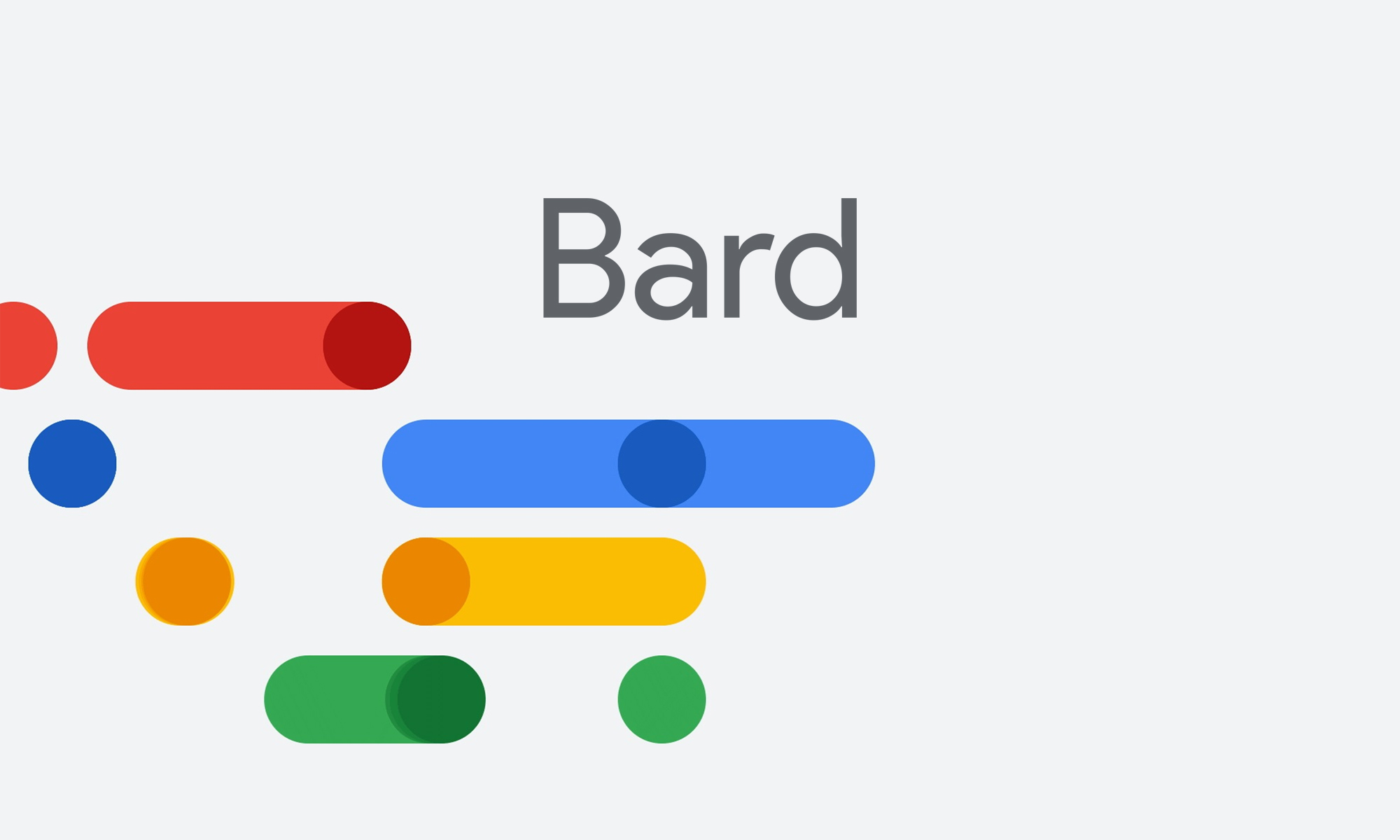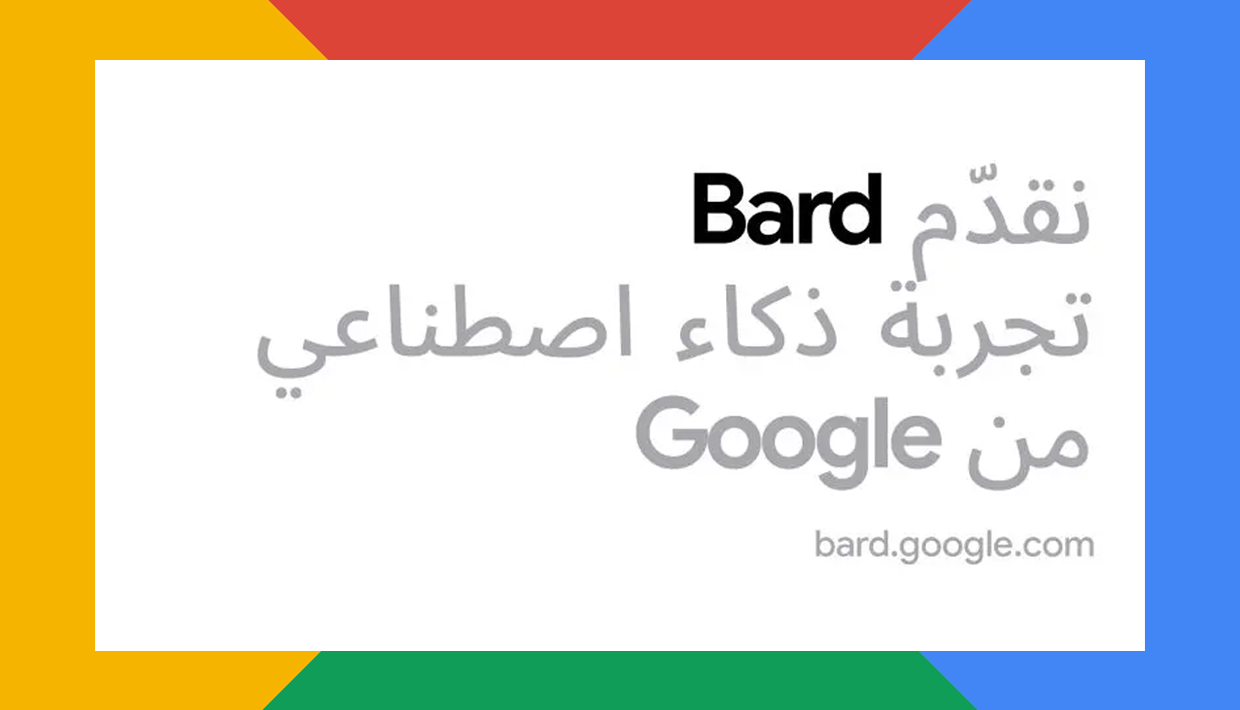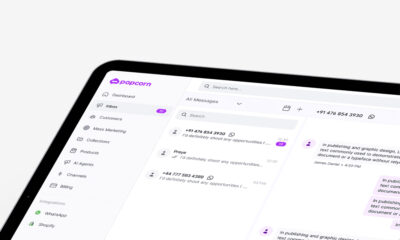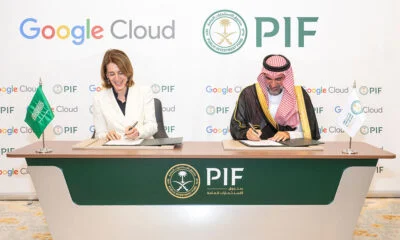News
Google Launches Arabic Version Of AI Chat Tool Bard
The generative AI platform can understand 16 dialects, including Saudi, Egyptian, and Emirati.

Alphabet, the company in charge of Google’s extensive suite of products, has launched an Arabic version of its artificial intelligence platform, Bard. The tool now contains updates to address Arabic speakers’ unique needs amid the search giant’s increasing rivalry with Microsoft and its infamous ChatGPT platform.
The conversational AI tool can understand questions in 16 colloquial Arabic dialects, including Egyptian, Emirati, and Saudi. However, the AI chatbot will provide answers in classical Arabic, Google execs explained at a Dubai press briefing.
“Bard will be available in the Arabic language across all corners of the Arab world as part of its global launch in 40 other languages,” announced Najeeb Jarrar, regional director of marketing for Google MENA.

Bard in Arabic now features a user interface supporting the language’s right-to-left script. At the same time, users can also input questions in several languages simultaneously, helping both bilingual speakers and novice language students.
“A big team of Google’s engineers and linguist experts worked together over the last months so that the product, Bard, will not just be a translation […] but a product that matches our use in the Arabic language,” said Marwa Khost, Google’s communications manager for MENA.
Also Read: Dubai’s Sheikh Hamdan Launches New Digital Cloud Project
When asked whether the relatively limited volume of Arabic online content would affect the depth of Bard’s responses, Google explained that the AI platform could source material from the wider online landscape and translate it into a user’s preferred language. The search company’s execs also noted that the amount of Arabic content had grown and diversified exponentially in recent years.
The launch of Bard in Arabic comes as the AI tool is rolled out across 59 new regions and countries, including Brazil and most of Europe. The latest expansion means Bard is available in 46 languages and 239 countries and territories.
News
Samsung Smart Glasses Teased For January, Software Reveal Imminent
According to Korean sources, the new wearable will launch alongside the Galaxy S25, with the accompanying software platform unveiled this December.

Samsung appears poised to introduce its highly anticipated smart glasses in January 2025, alongside the launch of the Galaxy S25. According to sources in Korea, the company will first reveal the accompanying software platform later this month.
As per a report from Yonhap News, Samsung’s unveiling strategy for the smart glasses echoes its approach with the Galaxy Ring earlier this year. The January showcase won’t constitute a full product launch but will likely feature teaser visuals at the Galaxy S25 event. A more detailed rollout could follow in subsequent months.
Just in: Samsung is set to unveil a prototype of its augmented reality (AR) glasses, currently in development, during the Galaxy S25 Unpacked event early next year, likely in the form of videos or images.
Additionally, prior to revealing the prototype, Samsung plans to introduce…
— Jukanlosreve (@Jukanlosreve) December 3, 2024
The Galaxy Ring, for example, debuted in January via a short presentation during Samsung’s Unpacked event. The full product unveiling came later at MWC in February, and the final release followed in July. Samsung seems to be adopting a similar phased approach with its smart glasses, which are expected to hit the market in the third quarter of 2025.
A Collaborative Software Effort
Samsung’s partnership with Google has played a key role in developing the smart glasses’ software. This collaboration was first announced in February 2023, with the device set to run on an Android-based platform. In July, the companies reiterated their plans to deliver an extended reality (XR) platform by the end of the year. The software specifics for the XR device are expected to be unveiled before the end of December.
Reports suggest that the smart glasses will resemble Ray-Ban Meta smart glasses in functionality. They won’t include a display but will weigh approximately 50 grams, emphasizing a lightweight, user-friendly design.
Feature Set And Compatibility
The glasses are rumored to integrate Google’s Gemini technology, alongside features like gesture recognition and potential payment capabilities. Samsung aims to create a seamless user experience by integrating the glasses with its broader Galaxy ecosystem, starting with the Galaxy S25, slated for release on January 22.

























